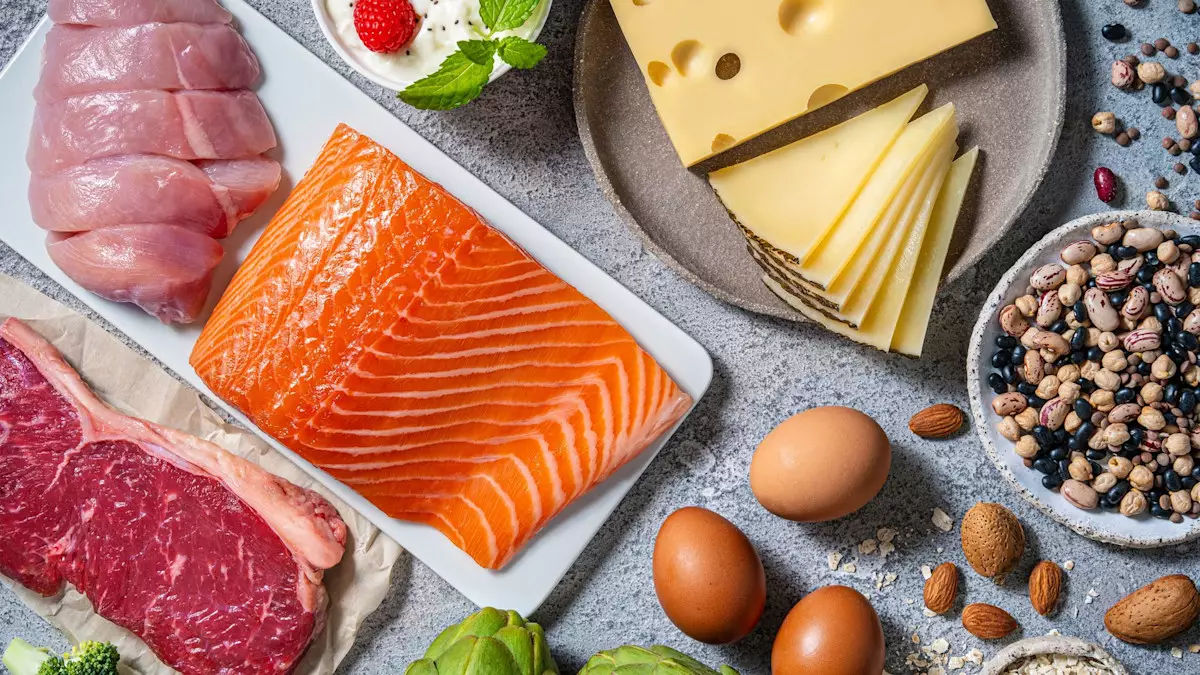When we think about protein, the usual image that comes to mind is often that of a bodybuilder fueling up for a strenuous workout. However, this essential macronutrient is far more than a cornerstone for athletic performance; it is a pivotal element in the daily lives of every individual, functioning tirelessly behind the scenes. From forming the structure of our hair, skin, and nails to supporting our muscles, hormones, and immune system, the importance of protein cannot be overstated. Unfortunately, the busy lives many women lead—often compounded by the myriad of diet trends—can lead to insufficient protein intake, affecting everything from energy levels to appearance.
Recognizing the Warning Signs
Have you ever experienced an inexplicable wave of fatigue or cravings that seem to come out of nowhere? These can be early indicators of inadequate protein in your diet. When your meals skimp on protein, they fail to send the fullness signals that keep your appetite regulated. Instead, your body continues to signal hunger, driving you to reach for those tempting carbs or guilty-pleasure snacks. It might be an eye-opening revelation that a diet low in protein leaves you yearning for nutrients, translating into constant post-meal hunger.
To downplay the importance of protein is to overlook its fundamental role in appetite regulation and satiety hormone production. Instead of shying away from foods rich in protein like fish, legumes, or dairy products, we should consider integrating them into each meal. Not only will this keep energy levels stable, but it can also act as a safeguard against those dreaded 3 PM snack attacks that threaten to derail healthy eating plans.
The Role of Muscle Mass in Overall Health
Muscle mass plays a vital role beyond mere aesthetics; it is integral to our metabolic health, everyday mobility, and overall stamina. An inadequate intake of protein can lead to a gradual deterioration of muscle tissue, a reality that becomes increasingly relevant for women approaching their 40s and beyond. During this phase of life, preserving muscle is crucial for long-term health and preventing frailty. Ensuring that protein is a regular fixture in your diet, coupled with a suitable exercise regimen, can foster a robust physical state that supports vitality and resilience.
Several studies indicate that women who engage in strength training and maintain a high-protein diet enjoy not just an improved physical appearance but also a greater quality of life. Muscle strength is not only essential for daily activities; it acts as a defense mechanism against metabolic slowdowns that often accompany aging.
Beauty in Balance: Protein and Aesthetics
A noticeable decline in personal appearance can often be an overlooked sign of poor nutrition. Hair loss, lackluster skin, and brittle nails are not merely cosmetic concerns but can be symptoms of protein deficiency. Protein serves as a building block for keratin, collagen, and elastin—the very components that keep our outer appearance youthful and vibrant. Many women are shocked to learn that issues like thinning hair or dull skin may stem from inadequate protein rather than the effects of age or stress.
Consequently, women should take stock of their protein intake, particularly if they observe unexpected changes in their physical appearance. Introducing high-protein foods into meals can remedy this and provide the body with the necessary nutrients to support healthy skin, hair, and nails, positively affecting self-esteem and overall wellbeing.
Brain Power and Immune Defense
The impact of protein extends into cognitive function and immune health, connecting nutrition to mental clarity and emotional stability. Proteins are crucial in the production of neurotransmitters like serotonin and dopamine, which significantly influence our mood and mental health. If your diet lacks sufficient protein, mood fluctuations, irritability, or even anxious feelings may become more pronounced.
In addition, a robust immune system thrives on quality nutrition. Protein is essential for the development of antibodies and immune cells that fend off illnesses. Insufficient protein can leave you vulnerable, making it harder to shake off common colds or recover from injuries. If recovery seems prolonged or minor injuries take an unusual amount of time to heal, it might signal a nutritional shortfall, underscoring the importance of adequate protein for overall health.
The Power of Listening to Your Body
Let’s discuss cravings; they are not merely a nuisance or a sign of weakness. These hunger cues are your body’s way of communicating its needs and can often signal a deficiency. If you find yourself yearning for a steak sandwich or indulging in dairy-rich products, it might indicate a deeper need for protein. This body’s dialogue can guide dietary choices and prevent further nutritional gaps.
Though general dietary guidelines suggest an intake of 0.8 grams of protein per kilogram of body weight, individuals leading active lifestyles, women over 40, or those recovering from illness might require more. Striving for a balanced intake—approximately 20 to 30 grams of protein per meal—can ensure that your body receives the nutritional support it deserves. Such sources include a rainbow of foods, from legumes and fish to eggs and fortified dairy products.
Getting the right amount of protein isn’t just about health; it becomes an essential part of the journey toward self-care, strength, and resilience. As you become attuned to your body’s signals regarding energy, appearance, and mental clarity, prioritizing a well-rounded plate will undoubtedly help you thrive. Never underestimate the impact of wholesome nutrition on your life; it’s a powerful catalyst for lasting vitality.

